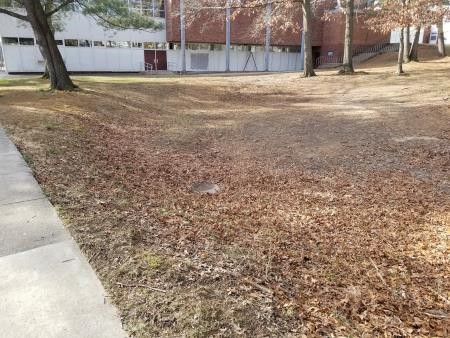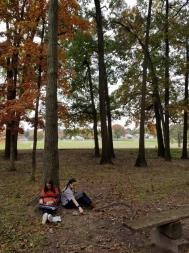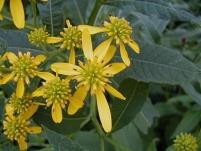 2019, Timonium, Maryland, USA
2019, Timonium, Maryland, USA
The Green Club of Ridgely Middle School’s plan for improving the quality of the Chesapeake watershed is growing a stormwater garden that contains plants native to Maryland. The people involved in this proposal are Riya Mahale and Sunny Shen. The garden’s purpose is to absorb some of the runoff that eventually ends up in the Chesapeake Bay. According to National Geographic, runoff is an overflow of water. It occurs when the land is unable to absorb any more water and the excess water runs across the land, eventually ending up in a body of water, like a bay or river. In this case, it is the Chesapeake Bay.
 Unfortunately, whatever pollutants the runoff contained also ends up in the Chesapeake Bay. This damages the Chesapeake watershed and the ecosystems that rely on it.
Unfortunately, whatever pollutants the runoff contained also ends up in the Chesapeake Bay. This damages the Chesapeake watershed and the ecosystems that rely on it.
This proposal aims to improve the quality of our watershed by reducing the amount of runoff that feeds into the Bay. The garden would be at the base of a hill at Ridgely Middle School where excess water would collect after rain. There, the plants in the garden would be able to efficiently soak up some of the runoff and the pollutants in it before it reaches the Chesapeake.

The garden is going to be completely made up of plants native to Maryland. Having a garden completely compiled of native plants means that there won’t be a risk of invasive plants spreading and harming the native ecosystem. The garden would be able to support those ecosystems native to Maryland. Students at Ridgely Middle would also have exposure to native wildlife. The garden will be quite large, as it will have an area of 100 ft2 and a perimeter of 20 feet.
For a project so beneficial to the watershed and its ecosystems, it is relatively uncostly if one already has a basic set of gardening tools. Because all the plants are native, there is no risk of invasion and native ecosystems are supported. Native stormwater gardens are not only an environmentally conscious and simple way of reducing watershed pollution, but they are also practical, making them a good choice for helping watersheds and the species that rely on them.